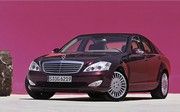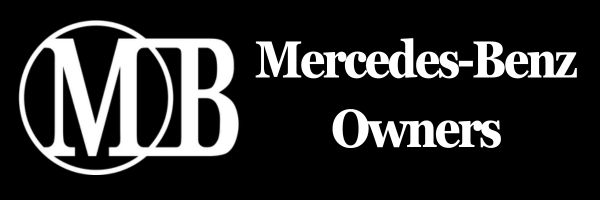Rory
Senior Member
- Joined
- Feb 8, 2005
- Messages
- 5,016
- Reaction score
- 233
- Location
- Cheshire, UK
- Your Mercedes
- 2005 C270CDi Avantgarde Estate. Bought 2005, sold 2022.
Analysts reckon it was a merger too far
Merc S Class: saviour or millstone?

DaimlerChrysler could be falling apart. That's the conclusion of an article in the latest issue of BusinessWeek.
The problem? On the unlikely merger seven years ago between the quality-led, premium brand leader Mercedes-Benz and the mass-market Chrysler company, few would have foreseen the situation we see today. Chrysler is the healthy part of the empire while Mercedes drags its feet.
Quality problems, a small car business that's bleeding money and high production costs have taken their toll on the German end of the operation. Mercedes is no longer a global benchmark for quality and profitability but "a money-losing shambles", according to the article. Mercedes lost $1.1 billion in the first half of 2005 alone.
The theory of the merger was that the two companies would learn from each other. Together, they would have the wherewithal to build new engines and small cars "for the world's emerging middle classes". Chrysler would gain Mercedes technology while Chrysler gives Mercedes somewhere to go if luxury car sales fall. It was, in the buzzword of the time, synergistic.
It didn't happen that way. Chrysler hoovered up Mercedes' cash squeezing the German operation's profitability. Mercedes then lost quality control and its reputation, along with market share and money, much of which resulted from bringing out too many new models too quickly, while demanding more from its suppliers at lower prices. The share price tanked.
Should DaimlerChrysler split?
And with a new CEO, Dieter Zetsche, at the helm, the question is being asked: does the merger still make sense? If the two companies were to split, they'd likely be worth more than their constituent parts, many argue. One financial analyst reckoned they'd be worth almost double separately than together.
However, a number of problems stand in the way, from finding a buyer for Chrysler, to unearthing the $8 billion needed to prop up Chrysler's under-funded employee pension scheme. Essentially though, Chrysler is performing reasonably well -- it's in the black as a result of popular models such as the Dodge Magnum and is keeping Mercedes afloat -- but it plays in the incredibly competitive middle market which is notoriously fickle, so there's little guarantee it can keep the momentum going.
Meanwhile, sales of Mercedes' two profit engines, the E-Class and C-Class, have plummeted by up to 35 per cent this year as a result of those widely-reported quality problems. And many feel they don't stand up well to competitors such as the Audi A6 and BMW's new 3-Series. Mercedes needs to inject some pep into its product line, say analysts, while cutting costs and improving quality. A tough ask.
So a split could be the solution to the group's problems -- but the conditions for making it happen are not good.
Merc S Class: saviour or millstone?

DaimlerChrysler could be falling apart. That's the conclusion of an article in the latest issue of BusinessWeek.
The problem? On the unlikely merger seven years ago between the quality-led, premium brand leader Mercedes-Benz and the mass-market Chrysler company, few would have foreseen the situation we see today. Chrysler is the healthy part of the empire while Mercedes drags its feet.
Quality problems, a small car business that's bleeding money and high production costs have taken their toll on the German end of the operation. Mercedes is no longer a global benchmark for quality and profitability but "a money-losing shambles", according to the article. Mercedes lost $1.1 billion in the first half of 2005 alone.
The theory of the merger was that the two companies would learn from each other. Together, they would have the wherewithal to build new engines and small cars "for the world's emerging middle classes". Chrysler would gain Mercedes technology while Chrysler gives Mercedes somewhere to go if luxury car sales fall. It was, in the buzzword of the time, synergistic.
It didn't happen that way. Chrysler hoovered up Mercedes' cash squeezing the German operation's profitability. Mercedes then lost quality control and its reputation, along with market share and money, much of which resulted from bringing out too many new models too quickly, while demanding more from its suppliers at lower prices. The share price tanked.
Should DaimlerChrysler split?
And with a new CEO, Dieter Zetsche, at the helm, the question is being asked: does the merger still make sense? If the two companies were to split, they'd likely be worth more than their constituent parts, many argue. One financial analyst reckoned they'd be worth almost double separately than together.
However, a number of problems stand in the way, from finding a buyer for Chrysler, to unearthing the $8 billion needed to prop up Chrysler's under-funded employee pension scheme. Essentially though, Chrysler is performing reasonably well -- it's in the black as a result of popular models such as the Dodge Magnum and is keeping Mercedes afloat -- but it plays in the incredibly competitive middle market which is notoriously fickle, so there's little guarantee it can keep the momentum going.
Meanwhile, sales of Mercedes' two profit engines, the E-Class and C-Class, have plummeted by up to 35 per cent this year as a result of those widely-reported quality problems. And many feel they don't stand up well to competitors such as the Audi A6 and BMW's new 3-Series. Mercedes needs to inject some pep into its product line, say analysts, while cutting costs and improving quality. A tough ask.
So a split could be the solution to the group's problems -- but the conditions for making it happen are not good.

